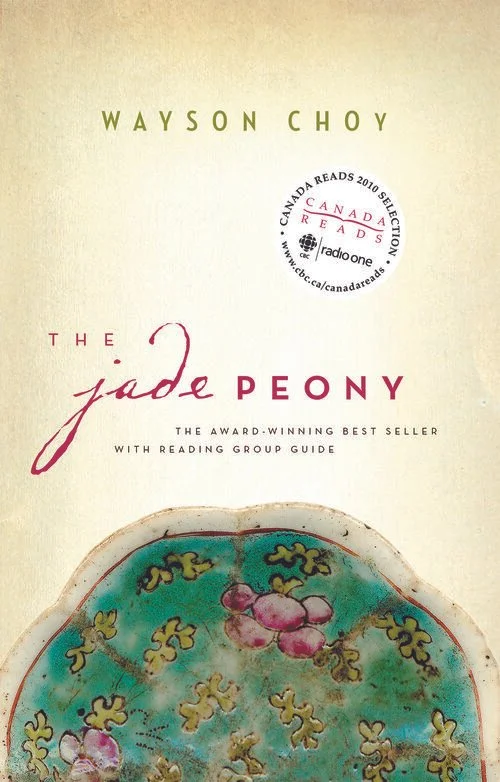The Jade Peony
by Wayson Choy
WHEN GRANDMAMA DIED AT 83 our whole household held its breath. She had promised us a sign of her leaving, final proof that her present life had ended well. My parents knew that without any clear sign, our own family fortunes could be altered, threatened. My stepmother looked endlessly into the small cluttered room the ancient lady had occupied. Nothing was touched: nothing changed. My father, thinking that a sign should appear in Grandmama’s garden, looked at the frost-killed shoots and cringed: no, that could not be it.
My two older teenage brothers and my sister, Liang, age 14, were embarrassed by my parents’ behaviour. What would all the white people in Vancouver think of us? We were Canadians now, Chinese-Canadians, a hyphenated reality that my parents could never accept. So it seemed, for different reasons, we all held our breath waiting for something.
I was eight when she died. For days she had resisted going into the hospital … a cold, just a cold … and instead gave constant instructions to my stepmother and sister on the boiling of ginseng roots mixed with bitter extract. At night, between wracking coughs and deadly silences, Grandmama had her back and chest rubbed with heated camphor oil and sipped a bluish decoction of an herb called Peacock's Tail. When all these failed to abate her fever, she began to arrange the details of her will. This she did with my father, confessing finally, "l am too stubborn The only cure for old age is to die."
My father wept to hear this. I stood beside her bed, she turned to me. Her round face looked darker, and the gentleness of her eyes, the thin, arching eyebrows, seemed weary. I brushed a few strands of, gray, brittle hair from her face; she managed to smile at me. Being the youngest, I had spent nearly all my time with her and could not imagine that we would ever be parted. Yet when she spoke, and her voice hesitated, cracked, the somber shadows of her room chilled me. Her wrinkled brow grew wet with fever, and her small body seemed even more diminutive.
"l-I am going to the hospital, Grandson." Her hand reached out for mine. "You know, Little Son, whatever happens I will never leave you." Her palm felt plush and warm, the slender, old fingers boney and firm, so magically strong was her grip that I could not imagine how she could ever part from me. Ever.
Her hand were magical. My most vivid memories are of her hands: long, elegant fingers, with impeccable nails, a skein of fine, barely-seen veins, and wrinkled skin like light pine. Those hands were quick when she taught me, at six, simple tricks of juggling, learnt when she was a village girl in Southern Canton; a troupe of actors had stayed on her father's farm. One of them, "tall and pale as the whiteness of petals," fell in love with her, promising to return. In her last years his image came back like a third being in our two lives. He had been a magician, acrobat, juggler, and some of the things he taught her she had absorbed and passed on to me through her stories and games. But above all, without realizing it then, her hands conveyed to me the quality of their love.
Most marvelous for me was the quick-witted skill her hands revealed in making windchimes for our birthdays: windchimes in the likeness of her lost friends only present to her, made of bits of string and scraps, in the center of which once hung a precious jade peony. This wondrous gift to her broke apart years ago, in China, but Grandmama kept the jade pendant on a tiny red silk envelope, and kept it always in her pocket, until her death.

